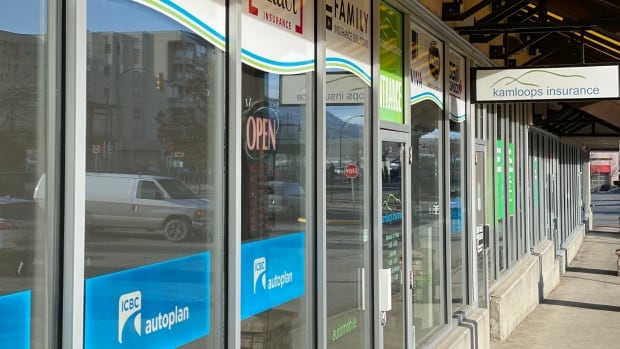[ad_1]
Frank Craig thought he had insurance.
He’d filled out the paperwork, worked with a broker and paid for a policy, but when his Merritt area home was flooded in November of 2021, he discovered his coverage wouldn’t pay for the needed repairs.
“If you think you got all your ducks in a row, guess what? Life comes at you.”
Craig’s experience has him urging others to check over their policies and the fine print in detail.
“You don’t know how good it is until you need it,” he said.

He’s not alone in reassessing his policy. Other residents who lost or had their homes damaged in extreme weather events have found that their insurance coverage did not match expectations.
According to the Insurance Bureau of Canada, the insurance industry in Canada now spends about $2 billion dollars a year on severe weather related claims, up from an average of about $422 million annually between 1983 and 2008.
“Insurance can and should be there to cover the impacts and get you back to normal,” said Dan Sandink, the director of research with the Institute for Catastrophic Loss Reduction.
However, people need to make sure they ask the right questions to get the coverage that will actually protect their homes in the event of a flood, fire or other severe weather event.
What kind of coverage is available?
Sandink said the place to start is by figuring out whether a homeowner can actually get the coverage that’s needed, in particular around flood coverage.
Some homes may not be offered particular kinds of flooding insurance or it may come at a high premium because of the risk.
There are some areas within communities like Merritt where getting overland flood insurance will cost sometimes thousands of dollars more to a person’s annual insurance costs.
What are you paying for?
While insurance is a contract between the consumer and the company, what’s actually covered will differ depending on the agreement.
Typically, insurance will not differentiate between a fire in a home and a wildfire so coverage tends to be more clear. However when it comes to flooding — it gets complicated.
Sandink said people need to understand that overland flood coverage, extreme rainfall flooding, sewer backup will all likely be separate endorsements or add-ons to their policies.
“It’s important to be clear about what you are interested in having covered and what you’ll actually be covered for.”
What are your deductibles?
In some policies, the customer will be responsible for paying a certain cost in order to access the coverage.
Sandink said typically people will pay higher deductibles in exchange for lower yearly premiums.
This could mean policyholders might have to assume more upfront costs in order to access an insurance payout for something like a flooding claim.
What difference will mitigating risk make?
In some cases, Sandink said people may be required to take actions to reduce the risk of something like a flood or a wildfire, in order to qualify for full insurance coverage.
This might include putting a backwater valve or backup power system in the case of something like flooding.
If a policyholder is making upgrades to reduce risk, they should check to see if insurers will offer them a lower rate.
What are the caps?
Within some policies, there can be limits on certain kinds of coverage.
Sandink gives the example of flood coverage where a home might be covered for the full replacement value in case of a fire, but only covered for a limited amount in the case of a flood.
“These sections of your policy, these endorsements might have a different cap so it’s important to understand what you’ll actually be insured for.”
He encourages people to shop around with different providers to get the kind of coverage that works for them and ask about whether options exist to remove caps.
Extreme weather claims increasing
According to Rob de Pruis, the Insurance Bureau of Canada’s national director of consumer and industry relations, claims connected to extreme weather have increased dramatically in recent years, but it’s important to keep in the rise in perspective.
He said the industry overall pays out $40 billion dollars annually in claims. So while the $2 billion spent annually on severe weather is significant, it’s not a huge percentage overall.

With the rise in claims, there’s also been more people sharing their concerns over the coverage they have had.
The mayor of Merritt Mike Goetz said he’s heard from many flood affected residents who struggled to navigate the insurance claims process.
“We had some problems with a couple of companies that were outright just terrible.”
However, de Pruis said often people get upset when they discover the coverage they paid doesn’t cover what they thought it did.
“Many of the disagreements or misunderstandings are just that people may misinterpret their insurance coverage. Your insurance policy doesn’t cover everything.”
Consumers in B.C. with complaints about insurance companies can contact the B.C. Financial Services Authority. If the concern relates to brokers, people can reach out to the Insurance Council of B.C.
Daybreak Kamloops12:55Consumers need to go through home insurance policies to ensure they understand their coverage
What are the five questions you need to ask your home insurance broker? We found out and heard why it might be one of the most important things you do to protect your home.
[ad_2]
Source link








